Technology
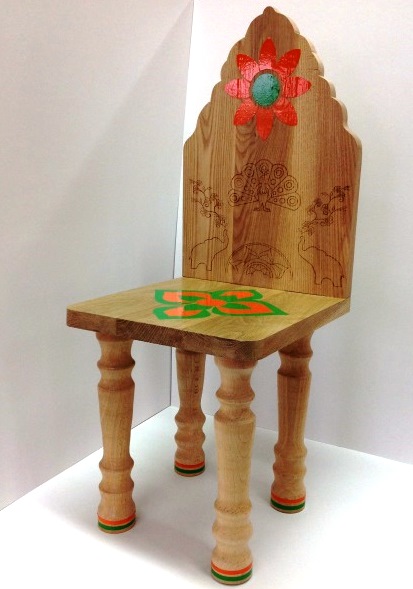
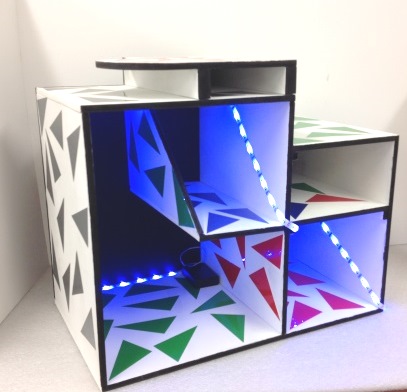
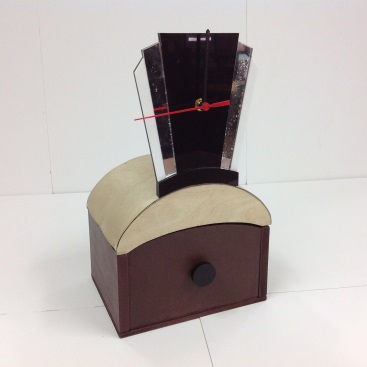
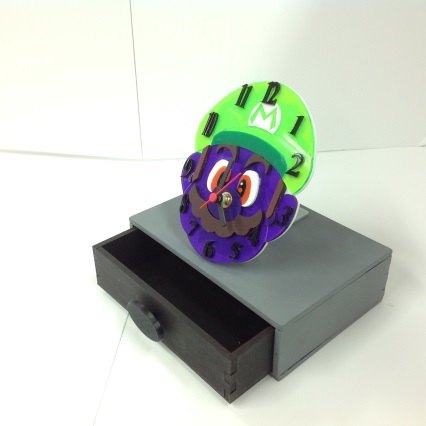
“With creativity being … one of the main drivers and wealth creators of the British economy … this is a subject that encourages young people to become designers, manufacturers, entrepreneurs and to satisfy their own ambitions, and those of the nation.” Wayne Hemingway, Designer
The aims of the Design and Technology Department
- To enable students to think creatively.
- To develop an understanding of the Design process.
- To promote students understanding of the impact of Design and Technology in the modern world.
- To gain an understanding of the impact of the past on the development of new products.
- To actively encourage students to review and challenge concept design ideas.
- To empower students to be critical thinkers.
- To develop cross curricular links as appropriate.
- To facilitate student's development.
- Promote and encourage team working.
- To enthuse & inspire students to continue their study of Design and Technology at University
Why study Design & Technology?
Young people with STEM (Science Technology Engineering Maths) qualifications are in high demand in the job market and have good long-term career prospects. A wide variety of industries rely on people with STEM skills. In addition to excellent career opportunities, studying Design and Technology allows students to develop a passion for creating, designing and problem-solving. It doesn't matter whether your interests lie in the creative designing side, complex manufacture or the culinary skills, all students are provided with the opportunity to aspire and attain at a high level.
From Samuel Mensah to Norman Foster, the world needs creative designers who can take a concept idea through to a final product, solving problems and developing solutions. Can you rise to the challenge? Could you design the next bestselling mobile device?
The subject is lively and enjoyable, whilst providing you with academic challenges to ensure that you are fully equipped to face the challenges of tomorrow. The world we live in requires intelligent and creative young people who can “think outside the box”.
Design & Technology is truly cross-curricular in its structure. Ranging from investigation into historical design elements through to the evolution of products as technology develops. You will be designing, planning and developing your own final products, incorporating and applying science and maths in an enjoyable and challenging subject.
We teach all elements of the design process to enable students to develop the required skills, independence and confidence to create innovative and high-quality products.
KS3
Through the KS3 Design & Technology experience at Woodbridge High School, students will be provided with opportunities to combine designing and making skills to produce high quality products. In Year 7 these products range from the design and manufacture of acrylic keyrings and chocolate moulds and packaging to the production of high-quality products made with traditional wood working techniques as well as developing a range of cooking and baking skills.
In Year 8 students build on their wood working skills further in the creation of a mechanical grabber, architectural modelling and pop-up cards and family meals – including an independent assessed cook of a family meal they design themselves to suit the needs of their own family.
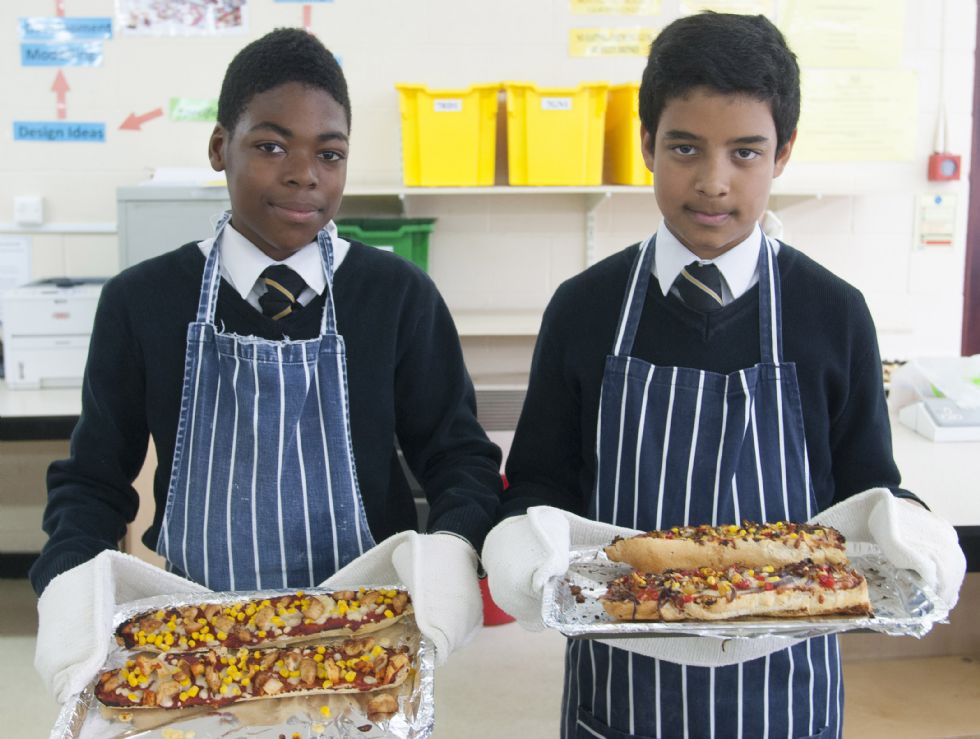
In Year 9 students are challenged further being asked to design and make a range of products building on the previous two years’ experience. They will continue to cook high quality meals, create a 3D board game, and biomimicry a themed lighting design.
We have a fully resourced CAD/CAM suite for our Computer Aided Design and Manufacture in Design and Technology. This ensures all students have the opportunity of experiencing the latest software, laser cutter and Rapid 3D Prototyping with our 3D Printer and CNC router.
Students spend one term in each of the three main focus areas of Food, Graphics and Product Design in Year 7, 8 and 9.
Students will experience a mixture of creative, hands-on designing and making as well as having the opportunity to study a range of theory topics such as electronics, mechanisms, user-centred design, architecture and nutrition. We embed the importance of accuracy, precision and safety during manufacturing to allow students to have greater autonomy with their practical work.
Early Choices Design & Technology
Early Choices Product Design and Graphics students will have a skills-based year in Year 9 that will enable them to work confidently and independently on their GCSE coursework and will gain improved foundation knowledge of the theory topics they will further explore in Years 10 and 11.
Projects will be creative, fun, design and make tasks that will be a mixture of traditional skills, Computer Aided Design and Manufacture (CAD/CAM). We cover the core theory elements for the GCSE to facilitate greater understanding and recall for the written exam they will sit at the end of their GCSE.
Early Choices Food - Hospitality and Catering
Early Choices Hospitality and Catering is our foundation course year during which students will develop their practical skills through a wide range of cooking activities and practical skills tasks. You will also start to learn the theory you will need for your written exam in year 11.
Practical elements covered this year include a focus on developing knife skills, plating and presentation techniques and creating high quality dishes.
Theoretical elements covered this year will include health and safety, laws and regulations within the Hospitality & Catering industry and the structure of Industry.
Students will be encouraged to experiment with dishes and will have the opportunity to create, produce and assess outcomes of a variety of dishes of their own choice.
KS4
From the start of June in Year 10 to the end of February in Year 11 students will undertake their 35 hour research, design, make, test and evaluate project that forms their NEA (Non-Examined Assessment) coursework project with Edexcel (Controlled Assessment) which is worth 50% of the GCSE.
There is one exam (worth 50% of the GCSE) to be taken at the end of Year 11. Students will study the theory content throughout Years 10 and 11.
During Key Stage 4, students can select one of:
- GCSE Design and Technology – Product Design (Edexcel)
- GCSE Design and Technology – Graphics (Edexcel)
These courses are structured so that students get exposure to a wide range of skills and knowledge through mini projects which they are able to apply in the generation of their coursework portfolios.
The end of course examinations test students’ full understanding of subject knowledge. Both Product and Graphics GCSEs lead into our A Level Design and Technology. Students who have studied A Level with us have gone on to study a wide range of exciting courses at university, such as Architecture, Architecture and Engineering, Product Design, Illustration and Animation.
KS4 Food Technology - EDUCAS Level ½ Hospitality & Catering
In Year 11, students will undertake their 72-hour research, proposal, practical cook, and evaluation of their cook, which form their NEA (Non-Examined Assessment) project, which is worth 60% of the qualification.
There is one exam (worth 40% of the qualification) to be taken at the end of Year 11. Students will study the theory content throughout Year 9 Choices Entry, Year 10 and Year 11 in preparation for this.
This course is structured so that students gain exposure to a wide range of practical skills and knowledge through mini projects which they are able to apply in the generation of their coursework portfolios.
The end of course examination test’s students’ full understanding of subject knowledge.
Where the EDUCAS Level 1/2 Award in Hospitality and Catering is achieved together with other relevant Level 1/2 qualifications, such as GCSEs in English and Maths and Science, learners may be able to access Level 3 qualifications relevant to the hospitality and catering sector, such as:
WJEC Level 3 Food, Science and Nutrition (certificate and diploma)
Level 3 NVQ Diploma in Advanced Professional Cookery
Level 3 Advanced Diploma in Food Preparation and Cookery Supervision
KS5
Students can select the following courses to undertake for a two year study, prior to going to university or entering the world of work.
GCE A Level Design and Technology (Product Design) – Edexcel
Product Design encompasses a wide range of design disciplines but is firmly rooted in the skills required to design and make high quality products. This qualification emphasises two key factors: creativity and sustainability. The structure allows students to develop a range of skills and outcomes that demonstrate their creativity, and apply these to a design and make project.
This course offers an exciting and academically challenging two years of study. Students will undertake a complex design and make coursework portfolio for a product of their choosing over the two years with a weighting of 50% coursework to 50% written examination. Areas of study include architectural and interior design and product design. There is a 15% maths element to this A Level in the written paper.
Extra Curricular Opportunities
At KS4 & 5 we offer a programme of study support sessions for all students. This provides students with an environment where they can reinforce their understandings and develop further.
At KS3 we offer a Food Technology Club, Young Chef Competition and an Electronics Club.
Future Pathways
Students who pursue a career in Design and Technology have a wide range of fields to enter. Exciting careers that strongly benefit form qualifications in Design and Technology are Engineering, Product Design, Architecture, Food Technologist, Food Scientist, Catering Manager, Interior Design, Graphic Design, Chef, dieticians, Media - Advertising; Marketing; Market Research; Television, Entertainment - Special Effects; Stage Design; Costumes; Props, Desktop Publishing - Newspapers; Magazines; Photography, Construction, Robotics, Manufacturing Processes, Computer Aided Design & Manufacture and Teaching to mention a few!
It is clear to me that D&T offers an unrivalled opportunity to inspire more young people towards a career in engineering and technology. Given the very significant projected talent shortfall in these areas … this is a hugely valuable subject.”
Dr Paul Greening, Director, Centre for Engineering Education, UCL
Design and Technology is a phenomenally important subject. Logical, creative and practical, it is the only opportunity students have to apply what they learn in Maths and Science – directly preparing them for a career in engineering."
Sir James Dyson, Founder and Chairman of Dyson and Patron to the D&T Association
“Britain is great at engineering and needs more engineers. I am always optimistic about the future for engineering when I see great design and technology project work produced by young people.”
Paul Jackson, Chief Executive Officer, Engineering UK
